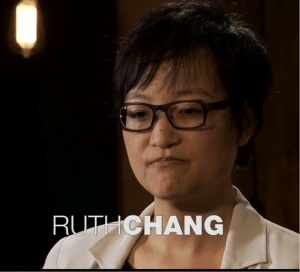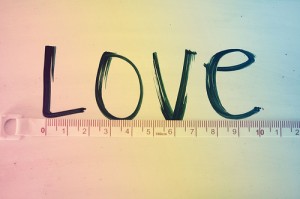Making Hard Decisions is Hard
But what might be worse?

Ruth Chang in her Ted talk explains some of the misunderstandings about decision making that lead to our frustrations when faced with difficult choices.
Those of you who have read some of my thoughts in the past will know that one of my passions is to encourage people to be kinder to themselves. Beating up on ourselves and allowing our “critic on the shoulder’ free reign is not healthy. Sometimes the best we can do for our health and wellbeing is to give the ‘critic’ the night off.
It’s always lovely to hear other people, coming from a different standpoint, reach similar conclusions to your own and Ruth Chang clearly does just that.
Better or worse?
The thing I’d never really thought about in decision making was this: In many truly difficult decisions, one choice won’t actually be better than the other. But when we find ourselves paralysed by a difficult decision, we will often berate ourselves for not thinking clearly enough and letting emotion get in the way of a rational decision: One choice must be better than another, it doesn’t make sense to think that a ‘Yes’ or a ‘No’ to a marriage proposal or to a decision about opening a business in Melbourne can be of equal value… either ‘Yes’ is the best choice or ‘No’ is the right answer given all the circumstances…. Clearly… all our friends/partners/mothers certainly seem to think so too.
So we go off and do an exhaustive pro’s and con’s list and at the end of that exercise, we still don’t know which is the right decision and so we often don’t make one at all.

Clichés
Ruth Chang made the point that our society and upbringing has not equipped us very well to weigh up and choose amongst the relative merits of two conflicting choices, we believe (and I have said so myself many times in the past) that we can’t manage what we can’t measure. It’s a lovely simple statement, and it’s also one of the many clichés we ‘business gurus’ love to quote as gospel… Simple, Obvious, Profound… and… Wrong
Or at least not right all the time. Yes if you want to lose weight, you need to use some kind of measurement to see how you’re going, similarly if you want to be more profitable next month and you decide to do so by producing and selling more widgets, you can only achieve that outcome and manage the process by taking one or more measurements… undoubtedly
Measuring
But some things can’t be measured.

I can’t measure how important money is to me and nor can I measure how important freedom or creativity is to me.
These things are in the realm of values and values are immeasurable.
Tough decisions are nearly always about values… weighing one set of values up against another.
- Do I take the redundancy and start my own business or stay where I am?
- Do I take the promotion and move to a different city, uprooting my family in the process, or stay in this job?
- Do I invest in this new technology or don’t I?
- Do I continue to expand the company or stop growing?
- Do I fire the employee who isn’t performing as well as she used to, or keep her on?
- Do I take on this highly profitable contract even though we’ve never done something like this before, or say no to it?
- Do I sack this client because she’s hard work or persist with her?
Imagine yourself facing those kinds of dilemmas; your friends/partners/mothers (and business coach) may all have an opinion about the choice you should go with but for you it may not be so clear-cut.
Core Values
These choices all come down to your core personal values, not mine, not your mother’s.
Two people faced with the exact same choices in exact same circumstances may make opposing choices and do so entirely appropriately.
Choices such as those above do not come down to weighing up relative quantities of ‘Good’ or ‘Bad’ … that’s why they are so hard.
And that’s as it should be.
Because confronting choices like those, is what it means to be human.

The question is not: ‘Should I sack this employee or shouldn’t I, what’s the better choice?’. I can make a compelling argument either way for you in such circumstances and so can you. The question you should ask yourself is: ‘Am I the kind the person who sacks this employee or am I the kind of person who doesn’t?’
The question is not: ‘Should I continue to expand the company, Or shouldn’t I?’. Again I can give you an equally compelling argument for either choice. Rather, the question should be: ‘Am I the kind of person who is happy to consolidate the company at this stage it is or am I the kind of person who keeps growing it?’
Being confronted with hard choices in life forces us to ask ourselves the questions: “Who am I? What do I stand for? What do I passionately believe in? What am I prepared to fight for? What is truly most important for me in my life?”
Now those are actually the kind of questions I want to be confronted with in my life… don’t you?
Next time you find yourself facing a tough decision, remind yourself that it may indeed be tough, difficult and frustrating, but it could be worse…
